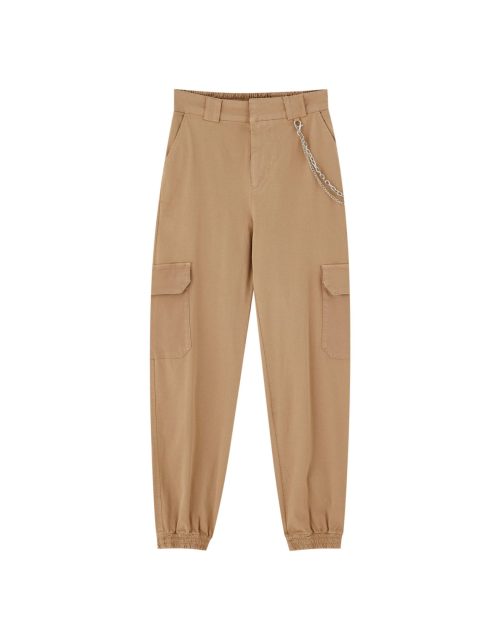5 Signs Your Wheel Bearings Need Immediate Attention

Your car’s wheel bearings are like the unsung heroes of your vehicle’s operation. They quietly keep everything rolling smoothly, allowing your wheels to spin with minimal friction. But when they start to wear out, they don’t go down without a fight. Instead, they’ll make themselves known with a variety of signs that you shouldn’t ignore. China trade hub will take you to explore five key signs that your wheel bearings need immediate attention, and why addressing these symptoms promptly can save you from bigger headaches down the road.

How to Spot Early Warning Noises
One of the first indicators that something is amiss with your wheel bearings is a strange noise coming from your wheels. It’s usually a low humming, whirring, or even a rumbling sound. This isn’t the kind of noise you can write off as road noise—it’s persistent and changes with your speed. If the noise grows louder when you turn, it’s a clear sign your wheel bearings might be the culprit.
Don’t wait for the noise to get unbearable. These early warning noises are your car’s way of waving a little red flag, asking you to pay attention. Ignoring these sounds won’t make them go away. In fact, they’ll likely get worse, leading to more significant issues that could be more expensive to fix.

Common Symptoms of Bearing Wear
Beyond the noises, there are other symptoms that can point to worn-out wheel bearings. One of the most noticeable is vibration or wobbling in your steering wheel. If you feel like your car is shaking when you’re driving at higher speeds, it could be due to wheel bearings that are past their prime. This vibration can also be felt through your seat, making for a very uncomfortable ride.
Another common sign is uneven tire wear. If one or more of your tires is wearing down faster than the others, it could be due to bad bearings causing misalignment. Additionally, you might notice that your car isn’t handling as well as it used to, especially when cornering. This is because worn bearings can affect your vehicle’s stability, making it feel less responsive.
A more serious symptom is brake problems. If you notice your brakes are less effective or if you hear grinding noises when braking, it could be related to bad wheel bearings. Since the bearings play a role in your car’s braking system, worn bearings can lead to increased stopping distances or even brake failure.
The Dangers of Ignoring Bad Bearings
You might be tempted to ignore these signs, thinking they’ll go away on their own. But ignoring bad wheel bearings can lead to serious consequences. First and foremost, worn bearings can cause your wheels to lock up, which could lead to a dangerous loss of control while driving. Imagine your wheel suddenly refusing to turn at a crucial moment—definitely not something you want to experience on the road.
Additionally, bad bearings can cause damage to other parts of your vehicle. They can put extra stress on your tires, brakes, and suspension, leading to more expensive repairs down the line. In the worst-case scenario, a failed wheel bearing could cause your wheel to detach from your car altogether. Not only would this cause significant damage to your vehicle, but it could also lead to a serious accident.
So, while it might be easy to push these symptoms to the back of your mind, the potential risks of ignoring them far outweigh the inconvenience of getting them checked out.
When to Consult a Professional Mechanic
If you’re experiencing any of the signs mentioned above, it’s time to consult a professional mechanic. While some car issues can be handled with a little DIY knowledge, wheel bearings aren’t one of them. Replacing or repairing wheel bearings requires specialized tools and expertise to ensure the job is done correctly.
When you take your car to a mechanic, they’ll be able to diagnose the issue accurately. They can check if the noise or vibrations you’re experiencing are indeed due to bad bearings or if there’s another problem at play. If your bearings do need to be replaced, a professional will ensure they’re installed properly, giving you peace of mind and a smoother ride.
It’s also worth noting that wheel bearings should be checked regularly as part of your vehicle’s routine maintenance. Even if you’re not experiencing any symptoms, having your bearings inspected can help catch potential issues before they become serious problems. Preventative maintenance is always cheaper and easier than dealing with a major repair after something has gone wrong.

Your wheel bearings might not be something you think about often, but they play a crucial role in your car’s performance and safety. By knowing the signs of bad bearings—like unusual noises, vibrations, uneven tire wear, and brake issues—you can take action before a minor problem turns into a major one. Don’t ignore these warning signs; consult a professional mechanic if you suspect your wheel bearings are failing. With the right attention and care, your wheel bearings will keep you rolling smoothly for many miles to come.
More wheel bearing products you can check wheelbearing.cn, a famouse wheel bearing manufactory from China.












